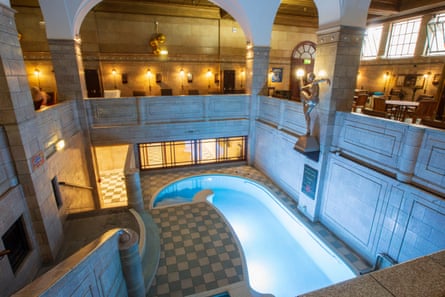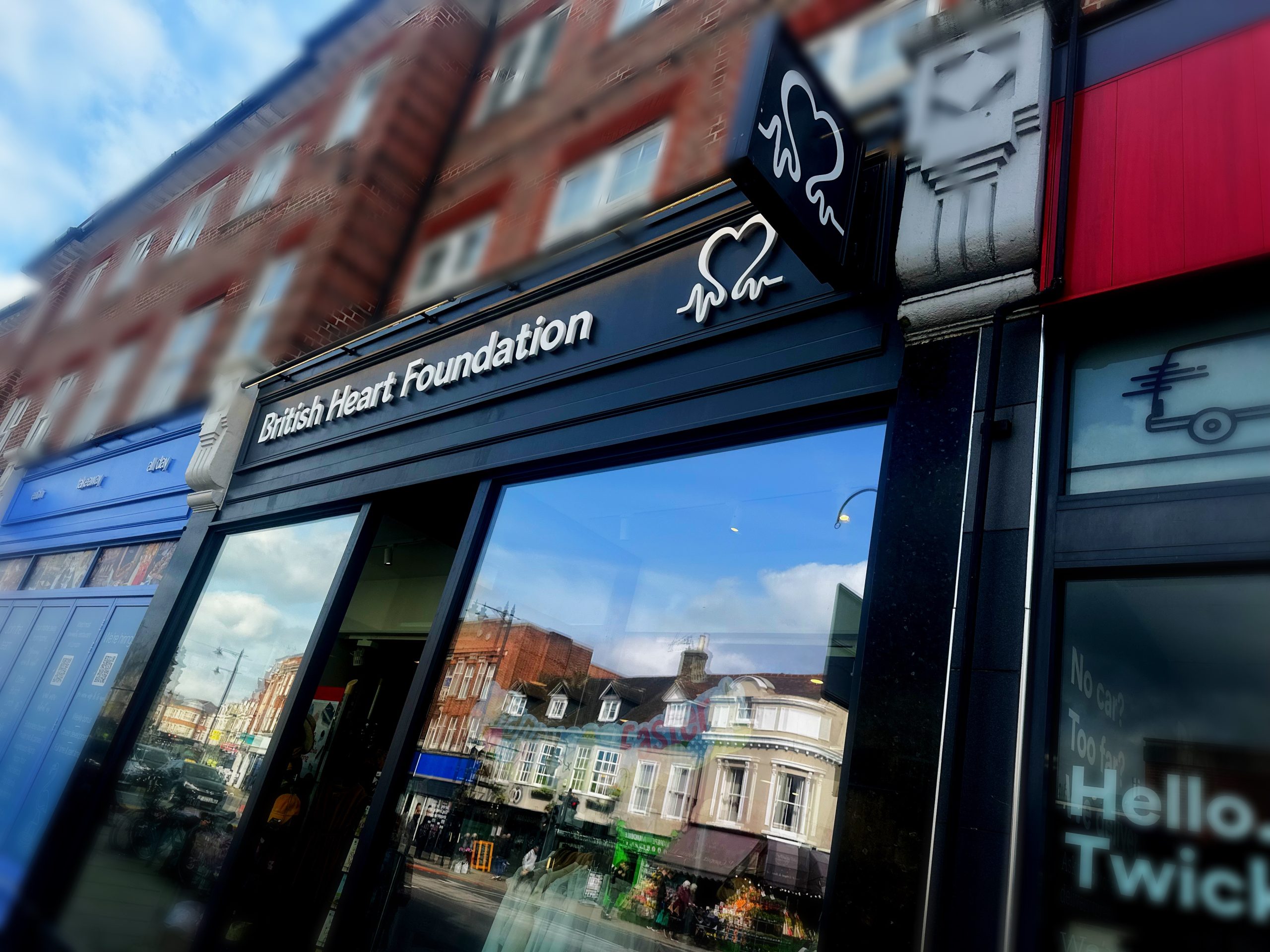Carlisle council has just voted to close the city’s Edwardian municipal Turkish baths “temporarily”, pending a possible refurbishment and reopening. If they do reopen, it will not be in their current form: £7.10 entry, cheap enough to be a regular weekly event for many residents. The best-case scenario is that they end up like my local, Harrogate baths: privately owned, with “pamper yourself” packages and Himalayan salt scrubs. Entry here is £20 at the cheapest times, making this a treat rather than a habit for most.
I’m not complaining. With only a handful of Turkish baths publicly accessible in Britain now, from hundreds at the height of the movement, I’m lucky to have one nearby and goodness, it is beautiful and a worthy treat. The traditional sequence of heated rooms and icy plunge pool are a Victorian gentleman’s Moorish dream – ochre, green and blue glazed brick, marble mosaic floor and dark wood cabins.
The Turkish baths at Harrogate. Photograph: John Angerson/Alamy
They are, or were, generally beautiful, the baths – the long-lost ones and the survivors. These public spaces were designed to be functional, but they are wonderful to look at. Porchester baths in west London – the other one I know well – resembles an MGM movie set, with its 1920s curves and columns, chessboard tiles and sweeping staircase. Whatever the motivations – sanitary, political, social, paternalistic – of the campaigners, civic officials and occasional crackpots behind the Turkish bath movement, they created an enduring good. Much like libraries (a movement of a similar vintage and similarly threatened), the baths are a vestige of a more ambitious, inspiring age in terms of what public amenities can be. They feel like a gift, an act of civic generosity.
Given how rare these municipal Turkish baths have become, I’m not sure many people know what we are losing, and have lost. The baths were about cleanliness, but from their inception they were also associated with mental health (some of the more enlightened 19th-century asylums had their own baths). I know they benefited mine. I discovered the Porchester in my early 20s when I was at a very low ebb. I had lost my hair to alopecia, gained weight and had an eating disorder. I felt lost and angry with my body: I would pinch and twist at my flesh or punch my thighs.
 Dim light and low murmurs … Porchester Spa in London. Photograph: David Martin
Dim light and low murmurs … Porchester Spa in London. Photograph: David Martin
The Porchester then was a calm, dim space – beautiful but quite shabby. The only noises were echoing drips, the occasional splash from the plunge pool and a low murmur and clink as people took delivery of toasties or tea from the cafe. It felt very matter-of-fact: naked and not-naked women sitting or lying around in various degrees of heat, absorbed in steaming, soaping or exfoliating, stretching, reading and relaxing.
The drip, drip, drip effect of being around women quietly treating themselves with simple kindness did something quite profound for me
It was no miracle, but for a few hours – heating, cooling, resting, letting go – I felt a peace I rarely felt elsewhere. It’s a cliche to talk about the diversity of bodies you see in a place like this (it’s true, there are piercings, muscles, varicose veins, scars, hair and no hair) but it was the drip, drip, drip effect of being around women quietly treating themselves with simple kindness that did something quite profound for me. It still does: when the self-loathing resurfaces (and it does occasionally), I know a quiet hour or two letting the soft animal of my body feel warm around others doing the same will help.
I like a spa occasionally; I enjoy suspending my disbelief about “toxins” and pretending I’m definitely going to use a serum in future. But the baths are a world away from radiance facials, robes and slippers and rainforest soundtracks. They offer something different, more ordinary and extraordinary all at once.
I haven’t been to the Porchester since its 2019 refurb; I hope it’s kept its heart. I see there’s a concession rate for pensioners and people on carers’ and disability allowance; that’s good, because these places weren’t intended to be the preserve of people who can afford a three-hour Balinese rejuvenating ritual. They were for anyone who wanted to give their body a few hours of warmth and kindness. Surely we need that now more than ever?
Do you have an opinion on the issues raised in this article? If you would like to submit a response of up to 300 words by email to be considered for publication in our letters section, please click here.
https://www.theguardian.com/commentisfree/2022/oct/16/carlisle-council-turkish-baths-closing




